Alex Lifeson on Envy of None's new LP and Rush's 50th anniversary: 'I'm playing more than I have in decades'
Canadian rock legend calls new bandmate an inspiration

Article content
When former Rush guitarist Alex Lifeson recorded his first album with Envy of None four years ago, he didn’t know the experience was going to make him fall in love with music all over again.
But as he recorded the 11-track self-titled debut alongside bassist Andy Curran, keyboardist Alfio Annibalini and singer Maiah Wynne back in 2022, that’s exactly what happened.
“The first record really got me going again. After coming off Rush and (late drummer) Neil (Peart’s) illness, this is the first project that really got me into music again and playing more,” Lifeson, 71, tells Postmedia in a video interview.
The group’s new sophomore record Stygian Wavz, which is now out, has found his passion for crafting fresh music reaching a whole new level.
“I’m playing more now than I have in decades. At least three or four hours a day, I’m playing and loving every second of it. So it’s been a great catalyst for me to kind of get myself reset again. Now I’m having a ball doing what I do best.”
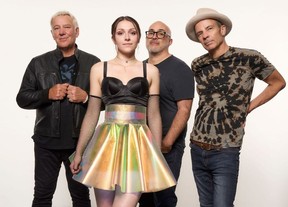
Since he learned to strum his first chords at the age of 12 when his sister’s boyfriend leant him a guitar, the Rock and Roll Hall of Famer has loved playing the instrument.
As a teen, he spoke lovingly about wanting to devote his life to writing songs in the 1973 documentary Come on Children. Not long afterwards, he co-founded Rush, who released their self-titled debut in 1974, and enjoyed 40 years of making music alongside his bandmates, bassist/singer Geddy Lee and Peart, who died in 2020.
I don't want it to be about the guy from Rush because this is a whole different thing.
Alex Lifeson on his new album with Envy of None
Together they made some of Canada’s most recognizable rock tracks, including Fly By Night, 2112, Closer to the Heart, The Spirit of Radio, Tom Sawyer, Roll the Bones, and Subdivisions.
After Rush disbanded in 2020 following Peart’s death, Lifeson didn’t fall out of love with music. But he freely admits he had lost some of his passion for it.
With its blend of anthemic hard rock and atmospheric electronica, Lifeson says the music he is making with Curran, Annibalini and Wynne has challenged him in a way he hadn’t been in years.
“In Envy of None, it’s been an open palette. Everyone contributes ideas and we take it to wherever it goes and it’s been really an exciting exercise for me and super satisfying to be totally free to do whatever I want,” he says.
Stygian Wavz captures the band exploring new sonic avenues, with the record’s first single, Not Dead Yet, a cathartic power anthem that couples a bluesy Evanescence-like sound with James Bond-sounding parts.
Elsewhere, Lifeson uses his 12-string Rickenbacker to break up Wynne’s dreamy vocals on The Story, while swirling guitar medleys mesh with gritty Middle Eastern sounds on the hard-charging track Under The Stars.
“Maiah is absolutely stellar. She was great on the first record, but she’s taken it to a whole other level now,” Lifeson says. She’s really blossomed as a songwriter, vocalist … all of it.”
With the album now out, Lifeson spoke more about his musical resurgence with Envy of None, the 50th anniversary of Rush and reminisced about that moment as a teenager when told his parents he wanted to ditch school to become a musician.
The music you’ve been making with Envy of None is adventurous. How does the experience you’re having now, sonically, resemble your early years with Rush?
There are certainly lots of parallels. I never felt restricted with Rush, but Rush was its own thing and we wanted to progressively move forward with our music. With Envy of None, I’ve made an effort on both these records to downplay the guitar. That comes from a little bit of uncertainty. I don’t want it to be about the guy from Rush because this is a whole different thing. But after we made this record, and I heard it … I was blown away by the fact that this sounds like a band now. We’ve evolved into this band that makes good, valid music. That’s really what we set out to do.
Maiah’s vocals stand out, much like Geddy’s. How did you react when you first heard her voice?
It is as if we’ve lived together in a different life. There’s a lot of years between the two of us, but when we work together, she’s my muse. I find her so inspiring … I inform a lot of my guitar parts from her vocals … It really is a dance and I’ve never really worked with someone like that before. Geddy and I have been writing music together for decades, but there’s something so inspiring about working with Maiah.
How did the music of Envy of None challenge you in a different way?
Working around Maiah’s voice was one thing … I was cognizant of her voice. She has a gentle voice, a fragile voice … So I think you have to be delicate in the way you approach other instrumentation, particularly guitar. I play a lot of acoustic and I use electric guitars for emphasis. There’s a lot of craftsmanship that goes into songwriting and arranging … It’s been satisfying for me to create some great guitar solos on these records that really speak to the song.
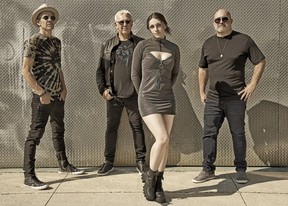
Have you been able to step back and appreciate your musical evolution?
It’s weird when you live it day-to-day, you don’t think about it. When we were making this record, I approached it with an open mind. I hear music in my head, and I think about ways I’m going to bring those ideas out and make them useful … So it feels organic and natural.
Rush is celebrating its 50th year with a new box set. What was it like putting that together?
In all fairness, we have so many great people working with us. Anthem can do whatever they want with that catalogue, but fortunately they come to us for our approval … This box set looks amazing. The songs that they found, I didn’t even know they existed. They did an amazing job to catalogue that whole half-century of what Rush is.
Can you reflect on the importance of Rush and its Canadian-ness?
Well, you never expect that when you’re a 15 or 16-year-old in your parents’ basement. For Rush, it wasn’t overnight. We probably spent six years on the road slowly building a following and getting out of debt. In the early ’80s, with Moving Pictures, things started to turn around at that point. So it was a very gradual ramp up, but we felt like we earned it. The fact that we were Canadian, Geddy and I still live here and I have no intention of living anywhere else. I love this country. We’re so very proud of being Canadian everywhere we go; maybe now more than ever, for obvious reasons. Being Canadian, there’s a modesty Canadians have, it’s part of us. It’s great that we did all this stuff, but I don’t need to toot a horn or anything. We took advantage of opportunities that came our way, and we worked hard. I think if you are willing to work hard and you get a few breaks, you can do whatever you want. I don’t know why we’re so special, but it happened for us.
Are you able to pinpoint what your lucky break was?
(A&R man) Cliff Burnstein getting our first album from Donna Halper at WMMS in Cleveland. She played the record as a favour for a friend. It got such great reaction that the next day she told Cliff (at Mercury Records) in Chicago that he should listen to the record … He listened to half the record and marched down to the president’s office and said, ‘We have to sign this band right now.’ We had a pending offer from another company. They got in touch with us and it just went from there. That was our first major break. You know, 2112, there’s a lot about that record that was pivotal for us. But when it first came out, it didn’t do well. It took a year for us to work on that record. The same with Moving Pictures. There are a few pivotal times in the Rush history.
Last time we spoke, I asked you about that final Rush concert in Los Angeles. On the new box set, fans get to hear the final three songs the three of you ever played live — What You’re Doing / Working Man / Garden Road. We also hear Geddy saluting Neil after he came out from behind the drumkit. Was this the best show Rush ever played?
It was the saddest one for sure. I thought we played really well that night. We were soaking in every second of it. I kept looking around at faces I recognized from shows over the years, over the decades. Fans who came to all the shows who had grown up with us … I looked at the clock on the wall at the Forum in LA. We’ve played there 23 times. I looked at that clock on the back wall and every second was being catalogued in my brain. When Neil came out that was the one and only time he emerged from his part of the stage. It caught both of us off guard. But it was also a sad moment, personally.
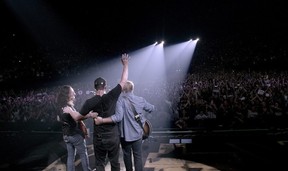
It’s been fun to read about you and Geddy playing together again. What sort of music do the two of you get up to?
Lots of stuff. We get together all the time. We play tennis together. I go over there and we end up sitting on the couch for hours laughing and screaming about the world and drinking too much coffee. But the times we go downstairs and make some noise, sometimes we just play. We gravitate to a bluesy sort of thing, maybe because that’s part of our roots. But it’s just fun to be with a friend playing. We do play some Rush stuff occasionally and I’ve come to realize that Rush’s music is way harder than I remember. Now I get it. When you’re doing it every day, you don’t think about it. Now I realize how complex the arrangements are (laughs). It’s eye-opening for sure. But sometimes we just play goofy songs from our past.
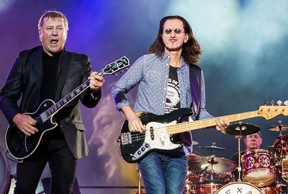
I saw this clip on YouTube of you arguing with your parents over wanting to be a musician as a teenager. What did your parents make of your career?
Your parents just want the best for you. My parents came from Yugoslavia after the Second World War with nothing. They lived through horrendous times for six years before coming to Canada as refugees. They wanted me to be a dentist or lawyer or engineer. A profession that was a good paying job for your whole life. My father worked three jobs for most of his life. If he needed something, he worked for it and he instilled that in me. That movie was a film called, Come on Children, it was by a Canadian filmmaker, Alan King. He filmed it in the cinema verité style, which is similar to what reality programming is now … He filmed it very much as a fly on the wall. The premise of that film was getting 10 kids from all parts of the city to move in together to a farmhouse for three months and film everything that happens … I was one of 350 kids that auditioned for it that got it. Halfway through, our parents came up to see what was going on, so during lunch that’s where I had that conversation with my parents about where I wanted to go in my future. I look back, and it’s a typical 17-year-old rebellious kid who just wants to make music and doesn’t see the point of studying geography and algebra when you’re not going to use those things. I’ve changed my tune a bit … but my point was, when you’re focused on something creative, why must you be held down? I just wanted to go and I wanted to play and it worked out.
In your 40 years together, Rush released 19 studio albums. Which title do you think is the band’s most underrated?
That’s tough. Caress of Steel was a difficult record. It was super important to us, but it wasn’t received well. Is it underrated? I don’t know. We were trying things and there wasn’t an audience for it. That doesn’t mean it was underrated, maybe it was rated just correctly? I think they all fit in the right place.
What about your favourites?
That’s like asking who’s your favourite child (laughs). I do love Moving Pictures, when I hear songs from that record there’s something about the sound of it. Maybe it triggers memories of the making of it because the recording process was so fantastic. We had a great time making that record. We knew we had something special and the whole experience was super positive. That would be one of my favourites. 2112, of course, for the energy and the courage it took to make a record like that at that point in our career. And Clockwork Angels, our last record, which has The Garden, possibly the greatest song we ever wrote. That’s also up there. Those are my top three.
Will we see Envy of None playing any live shows this time around?
Last time, I don’t think we were ready for it. The way we look at it now is it would be a fabulous couple of hours of live music in a nice venue. It would be beautiful to listen to. But it’s not easy. It’s not like jumping into the van and just heading down to the venue … It’s not so simple. But if there’s an opportunity, we’d be up for it.
So, before we end things, you’ve had an amazing career. Did you have a plan B in case things didn’t work out?
My dad said I could come and work for him as a plumber. So I was covered there. Thank God it worked out.











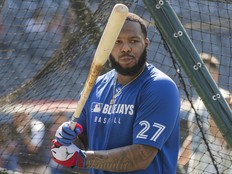
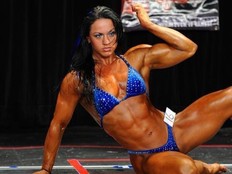
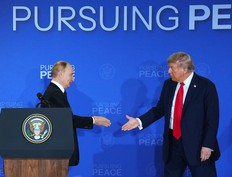
Postmedia is committed to maintaining a lively but civil forum for discussion. Please keep comments relevant and respectful. Comments may take up to an hour to appear on the site. You will receive an email if there is a reply to your comment, an update to a thread you follow or if a user you follow comments. Visit our Community Guidelines for more information.